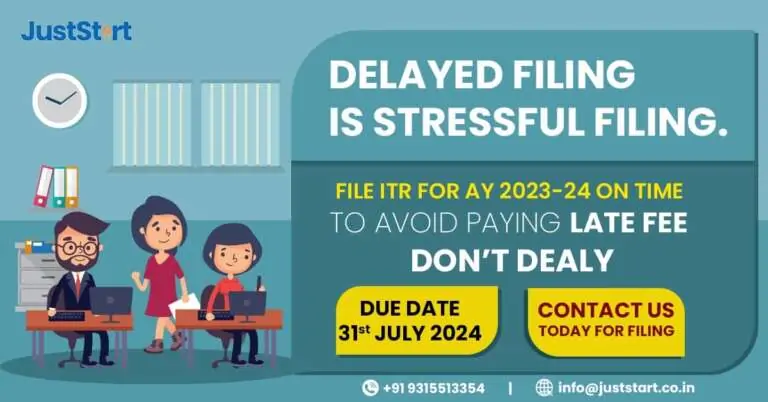Do you have a sole proprietorship firm and want to know all about the registration process? Here, you’ll find everything you need to know about sole proprietorship registration, which can help you build a successful business.
Have you goals to run and operate your own business? Sole Proprietorship is one of the best decisions to start. Apart from that, it’s the easiest way to form a business entity.
This Proprietorship registration ultimate guide will assist you in knowing how to get Proprietorship Firm Registration including its benefits of being a sole proprietor.
Table of Contents
ToggleWhat Is Sole Proprietorship Firm & How To Register?
Sole Proprietorship means a wholly owned business that is operated by the individual with his own earnings. They are masters of their own decisions and take care of their own revenues and expenses.
Apart from this, there is no interference in their business. The business structure of a sole proprietorship is cost-effective and there is a lot of autonomy to providing work on time to clients.
Steps To Register for a Sole Proprietorship
Here is a step-by-step guide for Sole Prop Registration. So let’s check the below list to clarify in depth.
- Collect all the documents: Collect all the necessary documents as proof of identity, like the Aadhar card, PAN card, and photo of the sole proprietor.
Ensure the applicant’s Aadhar card is linked with the Pan card for the smooth functioning of the process.
- Registered office proof: Depending on the applicant, which address proof he or she will be providing with. It means the address should be owned or rented.
A rented property requires a commercial electricity bill with the rent agreement.
For owned property, the electricity bill must be in the name of the owner with the Aadhar card.
- Licence under the Shop & Establishment Act: A trade license or gumasta license is required for doing any kind of business legally. This registration can be done with the help of professionals from the local municipal authority and the registered office.
- Goods and Services Tax (GST) registration: GST stands for Goods and Services Tax, and it is a tax levied on the supply of goods and services in India.
GST registration is not mandatory for all sole proprietors in India. It is only mandatory under the following circumstances:
- When annual product turnover exceeds 40 lakhs in a financial year
- When annual service turnover exceeds 20 lakhs in a financial year.
- If you engage in any e-commerce activities.
- Conduct business across state borders.
If you fall into the above categories, then you will have to register through the GST portal. For GST registration, we need the following documents:
- Pan card of the proprietor
- Aadhar card of the proprietor
- Email ID and phone number of the proprietor
- Address proof of the proprietor
- Passport-size photograph of the proprietor
- Trade name
- Business objects
- File your GST Returns: If you will have to apply for GST registration, then there will be mandatory returns that need to be filed on the GST portal.
- Open bank account: If you’ll need a separate bank account for your business transactions upon registration, then you will provide the documents to the bank with your trade name proof and open your current account.
In addition to the above requirements, various other compliance requirements will be applicable to the proprietorship based on industry and location.
Benefits of Sole Proprietorship In India
As we discuss the advantages of sole proprietorship, it provides freedom and flexibility to the proprietor. Some of the benefits of registering are given below.
Set up is easy for sole owners:
Sole Proprietorship is easy to establish. However, there is no concept of shares and selection of board of directors in business entities.
For a person who wants to register for a Sole Proprietorship, some of the required licenses are such as GST registration and MSME certificate. Other licenses will depend on the legal business you want to start.
Decision-making authority:
You are solely responsible for making your own decisions. No one will be responsible for any loss or profit. So after getting Sole Proprietorship Registration, you are free to conduct the business that works best for you.
Front cost is low:
When registering for a sole proprietorship, the costs you have to bear are much lower as compared to other business entities. Apart from this, you can get it registered by starting at a very low cost.
Compliance Requirements:
As we discussed sole proprietorship compliance, we need to file GST and income tax returns. It completely depends on the sales and purchases generated by your business. JustStart also has legal experts to guide you in the proper manner to file your GST returns. It is necessary to ensure that you have paid taxes on time to avoid penalties through timely filing of GST returns, income tax returns, etc.
Disadvantage Of Sole Proprietorship
As we talked about the advantages of sole proprietorship earlier, it also has many disadvantages.
Raising capital is difficult: The initial cost of starting a business in a sole proprietorship is very low, but as the business grows, it will be difficult to raise finance at the time of raising capital.
Risk to your personal assets:
Since you’re the only owner of the business, your personal stuff could be in trouble. If the business gets sued or you need to declare bankruptcy later on, the court might take away everything you own.
No perpetual Existence in a Sole Proprietorship Company:
There is no permanent existence in a Individual Proprietor Company as it has only one member and if something happens to the sole member, the business will be closed.
One of the most important questions is how to get started with a sole proprietorship. Make sure the business you want to set up is best for you. Making up your mind is very important for any business. Getting new ideas for your business will take you to higher places. If you have a name/brand for your business, get a trademark for the business name and get it registered so that no one can steal or copy your brand name. Our legal experts can also help you in trademark registration.
Conclusion
Running your business as a sole proprietorship means you are the sole owner of the business. It is one of the most simple and manageable business structures. This type of business entity has limited liability as the proprietor has complete access to the business profits.
However, this type of business structure is suitable for those who don’t want to expand their business on a large scale.
Hence, if you require any further assistance, we at Juststart, a team of highly professional professionals, will help you register your sole proprietorship.








